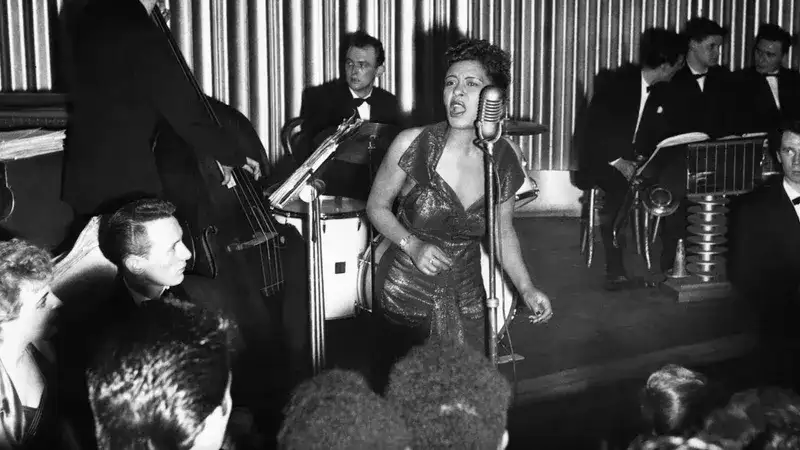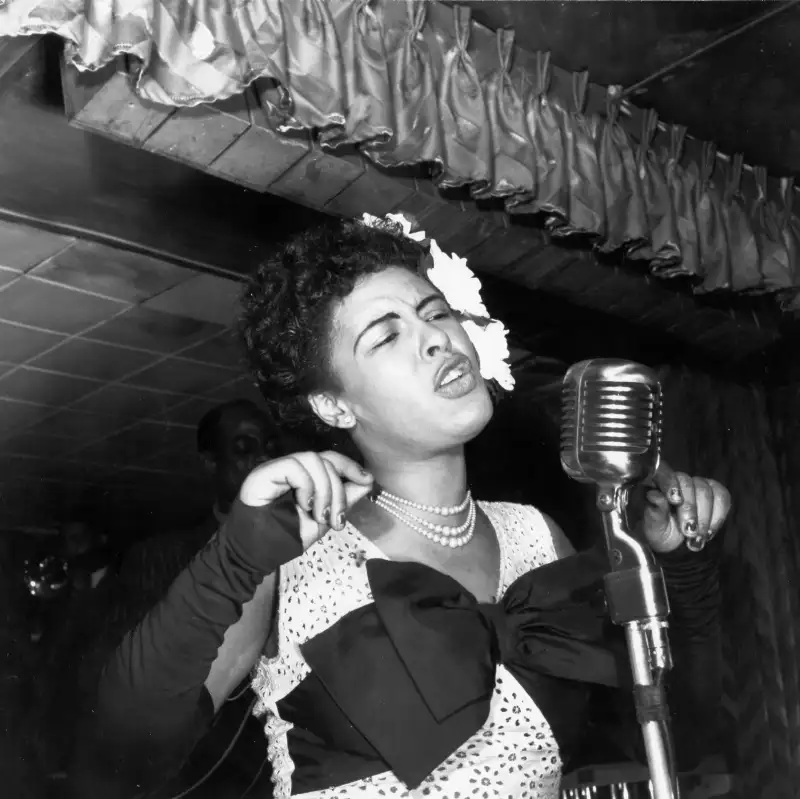Meet Lady Day
Read More About Our ProductionThe Early Life of Billie Holiday
Struggle was always a major factor in Billie Holiday’s life. Born Eleanora Fagan on April 17, 1915 to an unwed teenage couple, Billie’s mother was kicked out of her house when she got pregnant. Her mother arranged for her older, married half-sister to take care of Billie in Baltimore. Childhood was very difficult for young Billie. She dealt with a lot of abuse from her cousin, and suffered from being in other people’s care.

Things got worse as she grew up, and she was brought into juvenile court by age 9. She was then sent to a Catholic reform school, where they locked her in a room with a dead girl overnight as punishment. Billie had nightmares about this the rest of her life. She was then released to her mother who had now opened a restaurant, and dropped out of school to begin working with her mother.
But things did not get any easier for Billie. She was sexually assaulted, and after having to be a protective witness in a case against the man, she began running errands for a brothel. Around this time is when she first heard the music of Bessie Smith and Louis Armstrong, and when her mother moved to Harlem, NYC in 1928, Billie moved to the area the next year.
While living in a Harlem boarding house, at 14, Billie turned to sex work to earn money after several failed attempts at being a maid. By 15, Billie was arrested for prostitution. The judge labeled her “a girl of bad character,” and after being sentenced for four months at Welfare Island (now Roosevelt Island), she returned to Harlem and began using marijuana, alcohol, and opium to have “good times.” As she became engulfed in the Harlem music scene, her substance abuse increased.
She began singing in Harlem night clubs under the name Billie Dove, and when she was 17 she sang in place of singer Monette Moore at Covan’s (a.k.a. Covan’s Morocco Club), where producer John Hammond stumbled upon her and talked her into recording some songs. The second song they recorded called “Riffin’ the Scotch” sold 5,000 copies, and her music career started taking off. Hammond compared her to Louis Armstrong, and she signed with Hammond’s record label Brunswick in 1935.

Billie Holiday, 1947 Photo: Getty Images
She began working with more musicians, and getting into romantic relationships with some. Her intimate but platonic relationship with Lester Young saw them playing together as well as living together for a while, and Young gave her the nickname “Lady Day” while she called him  “Prez.”
“Prez.”
Some of these relationships helped her substance abuse problem dig deeper and deeper, until wartime shortage of opium turned her on to heroin. Her heroin use became a defining aspect of her public image, influencing both the narrative about her, and how audiences and critics perceived her.
Successful with her music but less with love, she went through a few marriages, including trombonist Jimmy Monroe in 1941, Joe Guy in 1951, and Louis McKay in 1957.


